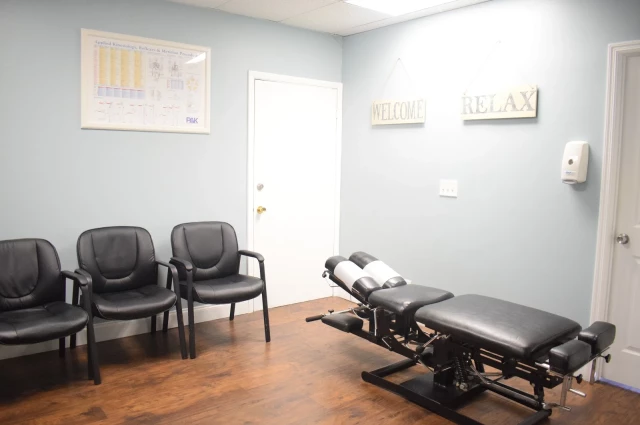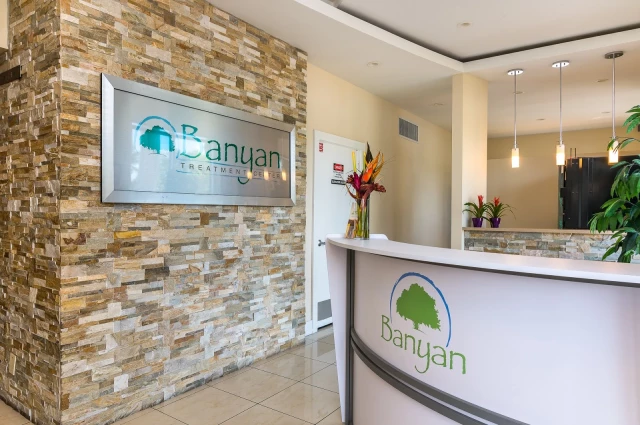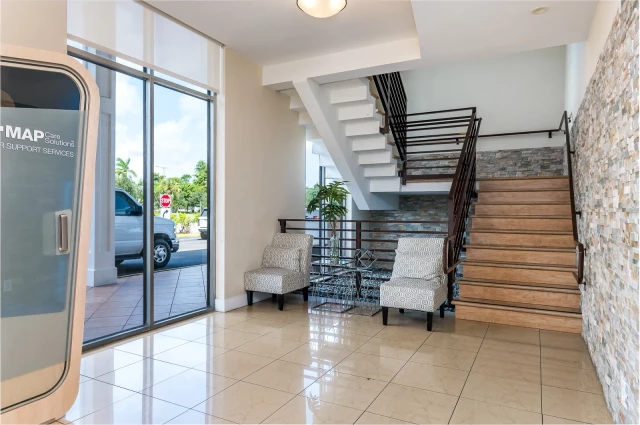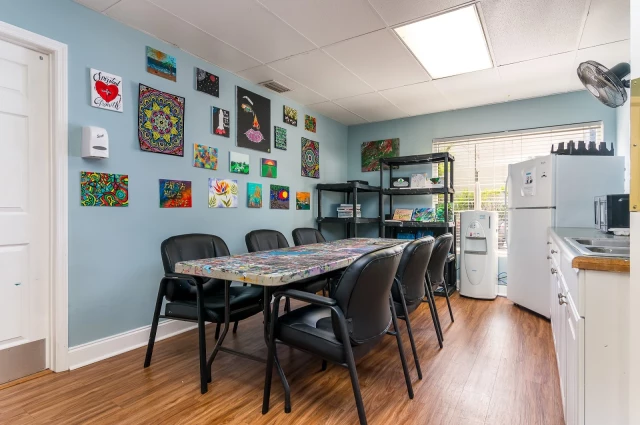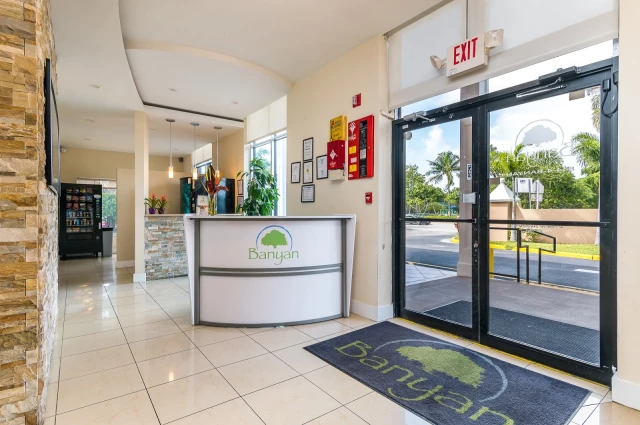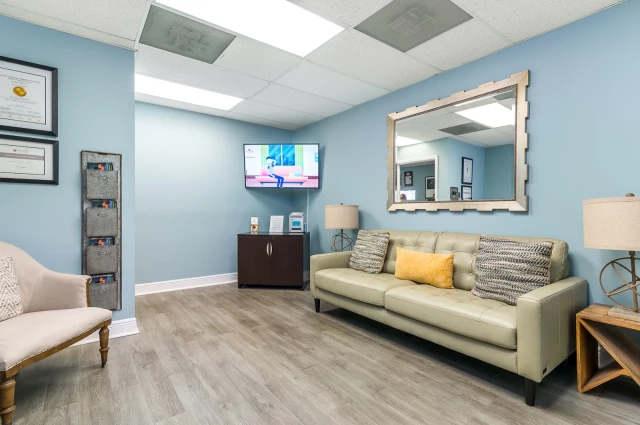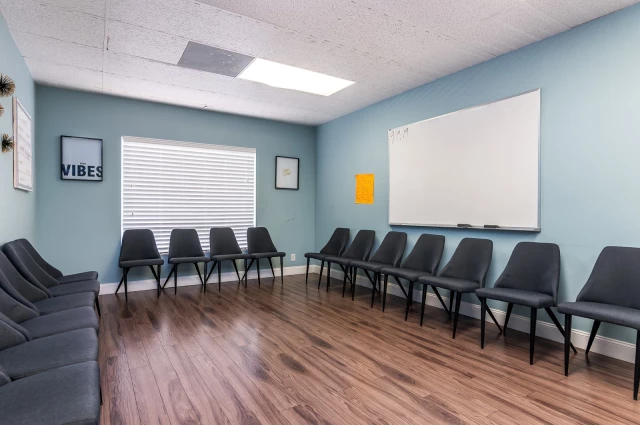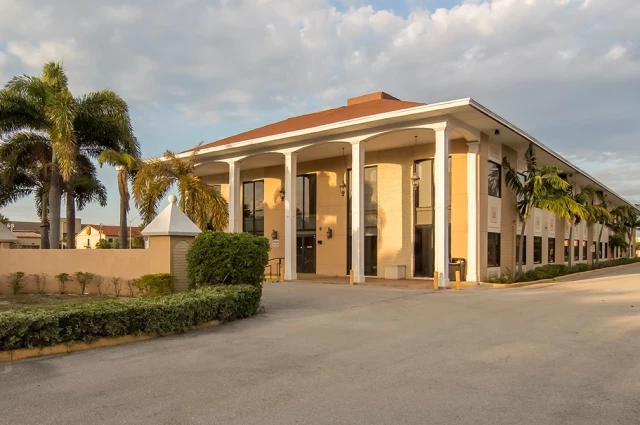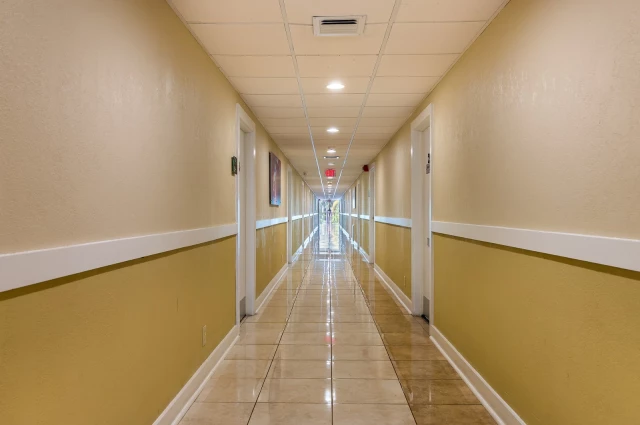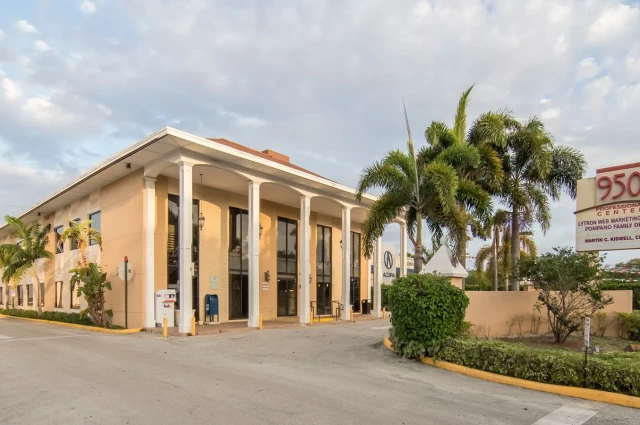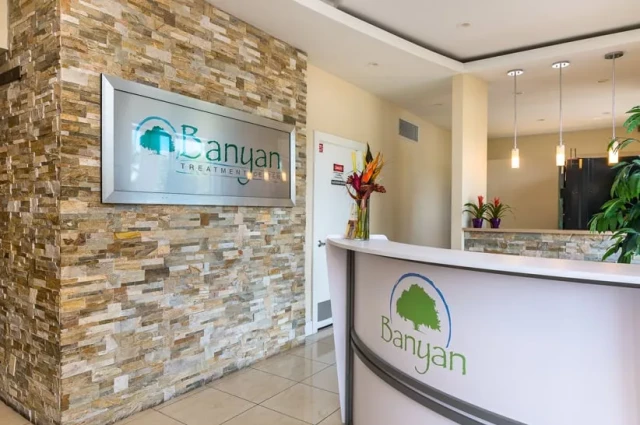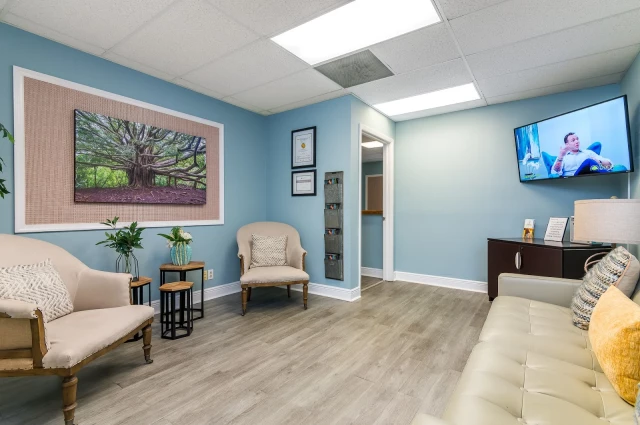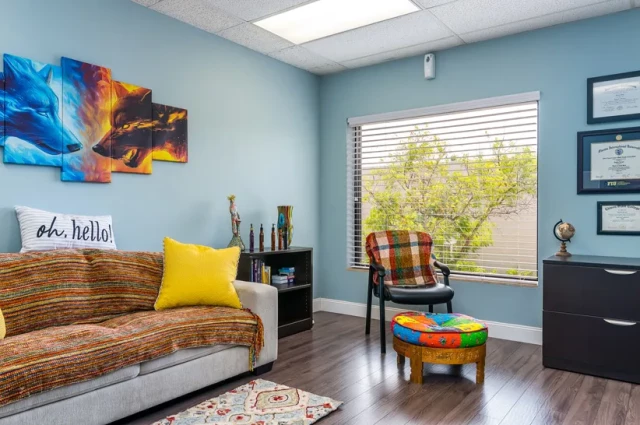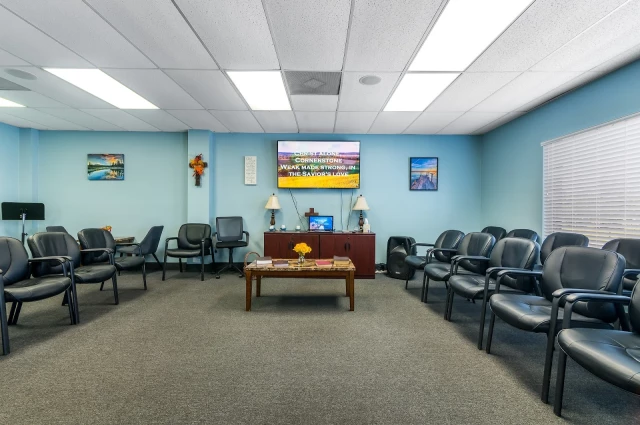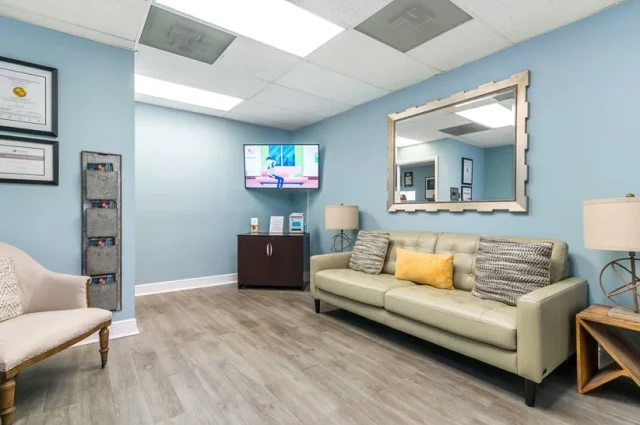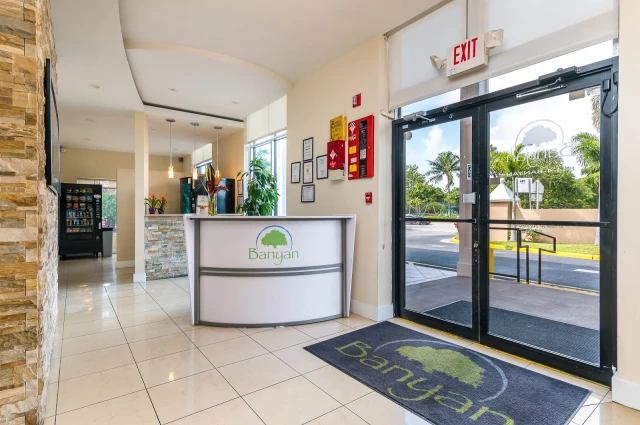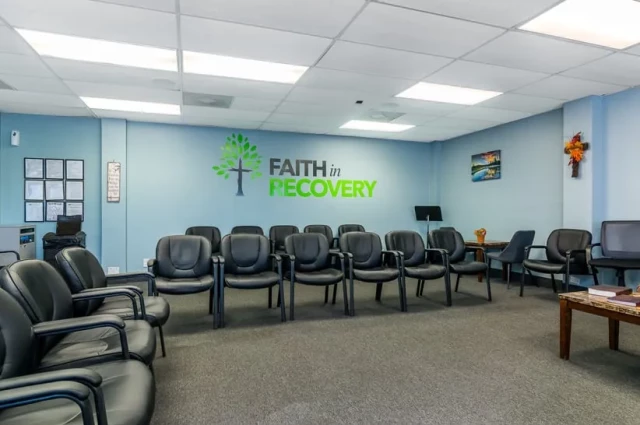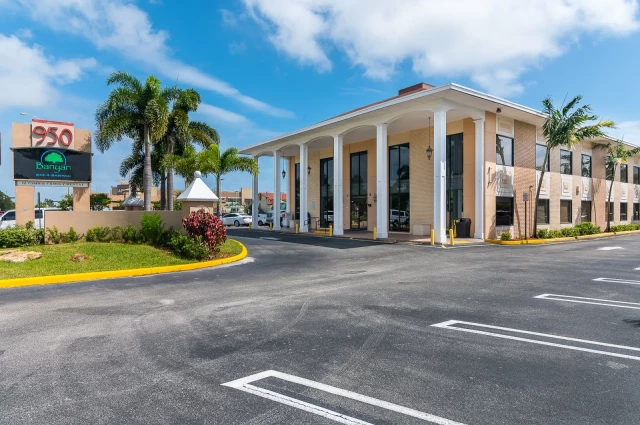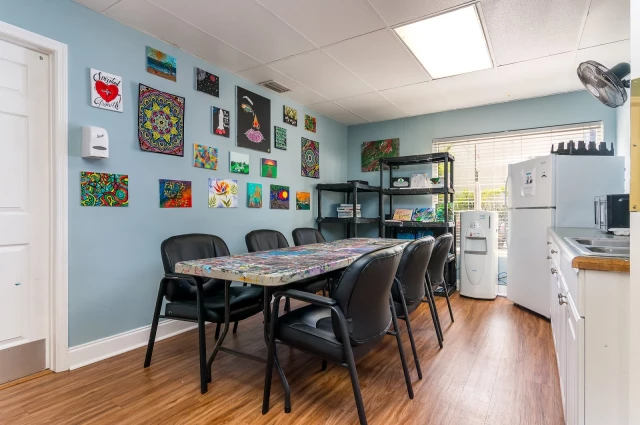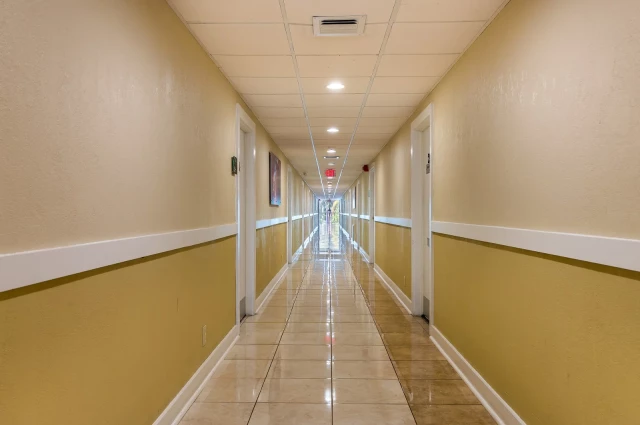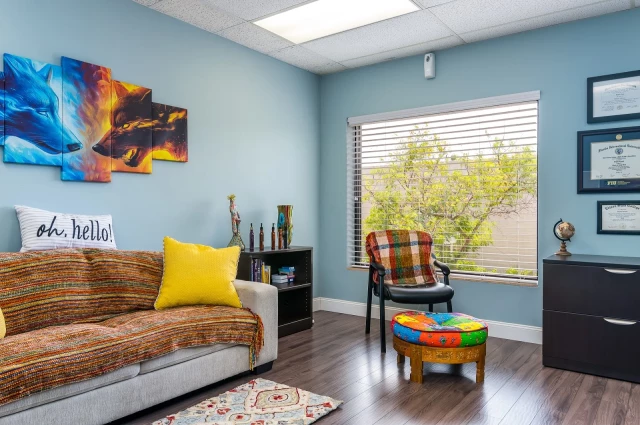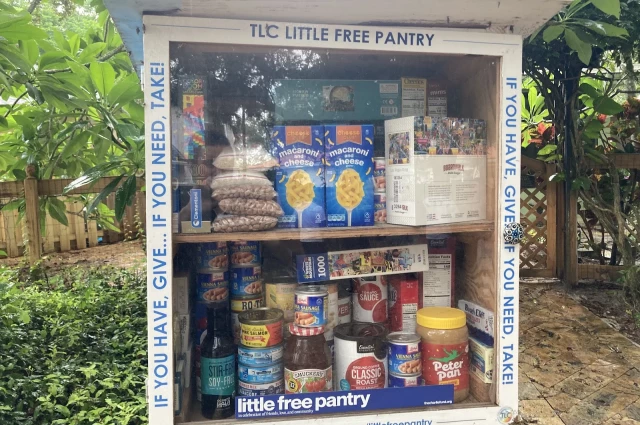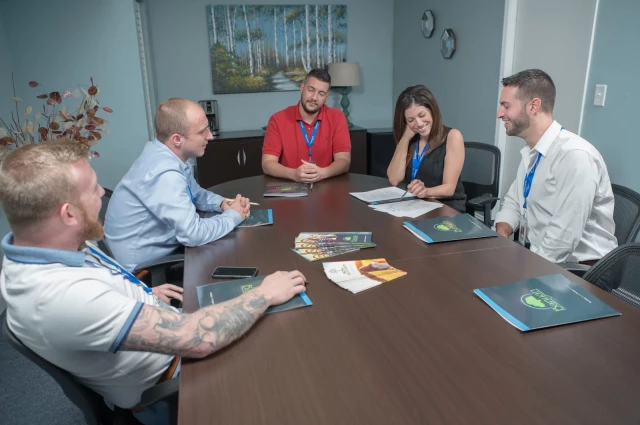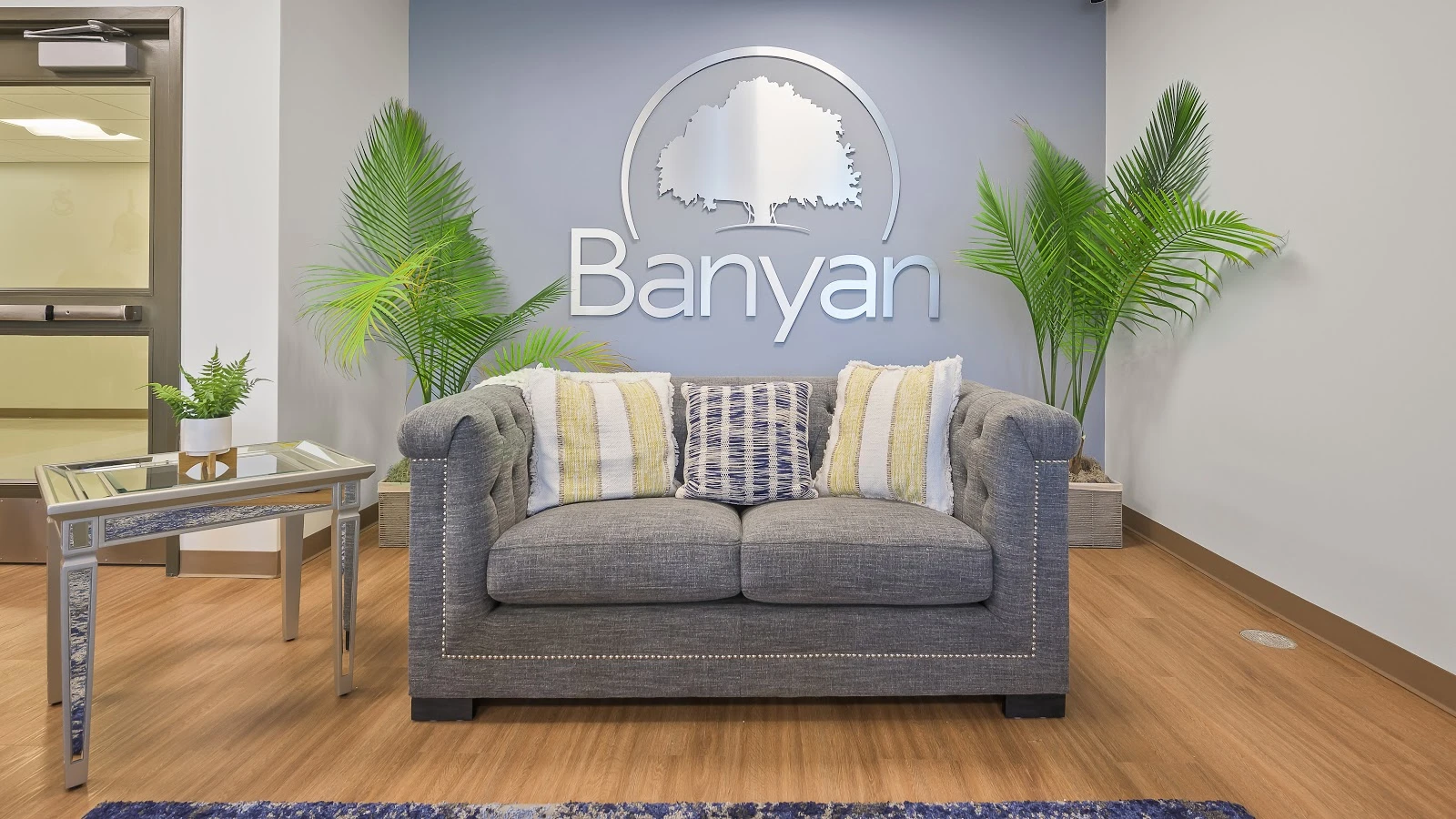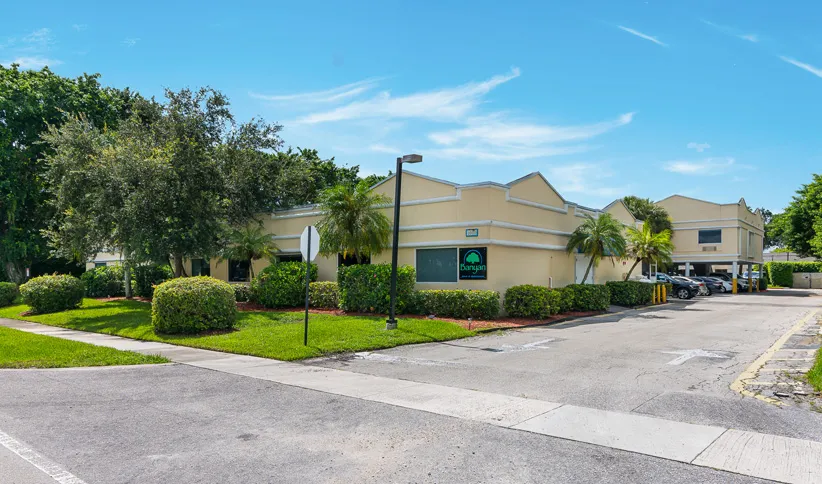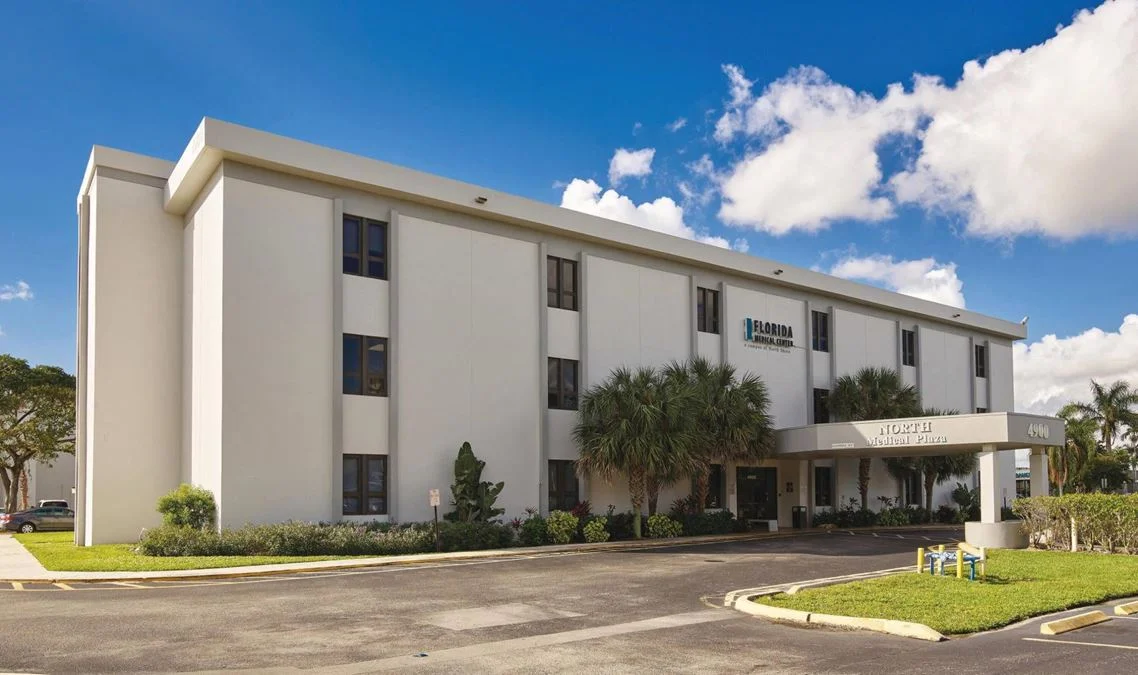Banyan Treatment Centers Pompano Information
Treatment
Who We Treat
- Male and Female
- Veterans
Treatment Focus
- Family Program
- Alcohol
- Anxiety
- Detox
- Co-Occurring Disorders
- Drug Addiction
- Opioids
- Veterans
Approaches
- 12-Step-Based
- Evidence-Based
- Twelve Step
- Holistic
- Cognitive Behavioral Therapy (CBT)
- 1-on-1 Counseling
- Adventure Therapy
- Art Therapy
- Meditation & Mindfulness
- Biofeedback
Conditions We Treat
- Depression
- Anxiety
- Bipolar Disorder
- Post Traumatic Stress Disorder (PTSD)
- Obsessive Compulsive Disorder (OCD)
- Trauma
- Bipolar
- Co-Occurring Disorders
Substances We Treat
- Alcohol
- Benzodiazepines
- Chronic Relapse
- Heroin
- Opioids
- Cocaine
- MDMA/Ecstasy
- Ecstasy
- Psychedelics
Languages
- English
Aftercare
- Intensive Outpatient Program
- Follow-up Sessions (online)
- Outpatient Treatment
- Private
- Professional Re-entry Support
- Support Meetings
- Alumni Events & Get-Togethers
- Online Alumni Groups
Level of Care
- Outpatient
- Intensive Outpatient Program (IOP)
- Day Treatment
- Outpatient Detox
- Detox
Experience
On-Site Amenities
- Access to Nature
- Airport Transfers
- Basketball Court
- Fitness Center
- Gardens
- Gourmet Dining
- Internet
- Internet Access
- Library
Personal Amenities
- Air-Conditioned Rooms
- Bathroom Essentials
- Housekeeping
- Allow Cell Phones
- Internet Access
- Laundry Service
- Shared Bathroom
- Shared Rooms
On-Site Activities
- Museums
- Yoga
- AA/NA Meetings
- Adventure Outings
- Farming
- Gardening
- Fishing
- Hiking
- Volleyball
- Massage
Special Considerations
- Allows Phones
- Gender-specific groups
- LGBTQ group
- Family Program
- Dietary Accommodations
- Vegan
- Vegetarian
- COVID-19 Measures
- Healthy Meals are provided
Accreditations
-
State mental health department
State mental health department accreditation refers to the process of evaluating and certifying the quality and standards of a state's mental health department, ensuring that it provides high-quality services and meets specific criteria for mental health care. The accreditation process is performed by a third-party organization and helps to improve the overall care and treatment of individuals with mental health conditions.
-
State department of health
Government agencies issue State Licenses, granting rehabilitation organizations permission to operate their businesses lawfully within specific geographic regions. The specific licenses needed for legal operation are typically determined by the type of rehabilitation program offered by the facility and its physical location.

-
The Joint Commission
The Joint Commission accreditation for addiction and behavioral health is a prestigious recognition signifying a facility's commitment to delivering high-quality care and safety for individuals dealing with substance abuse and mental health issues. It involves rigorous evaluations and assessments, ensuring patients receive evidence-based treatment and exceptional care. This accreditation demonstrates a facility's dedication to continuous improvement and ethical practices, building trust among patients and healthcare professionals seeking top-tier addiction and behavioral health services.

Additional Locations
Banyan Treatment Centers Pompano Accepts The Following Insurance Plans
Find the best treatment options. Call our free and confidential helpline today!
